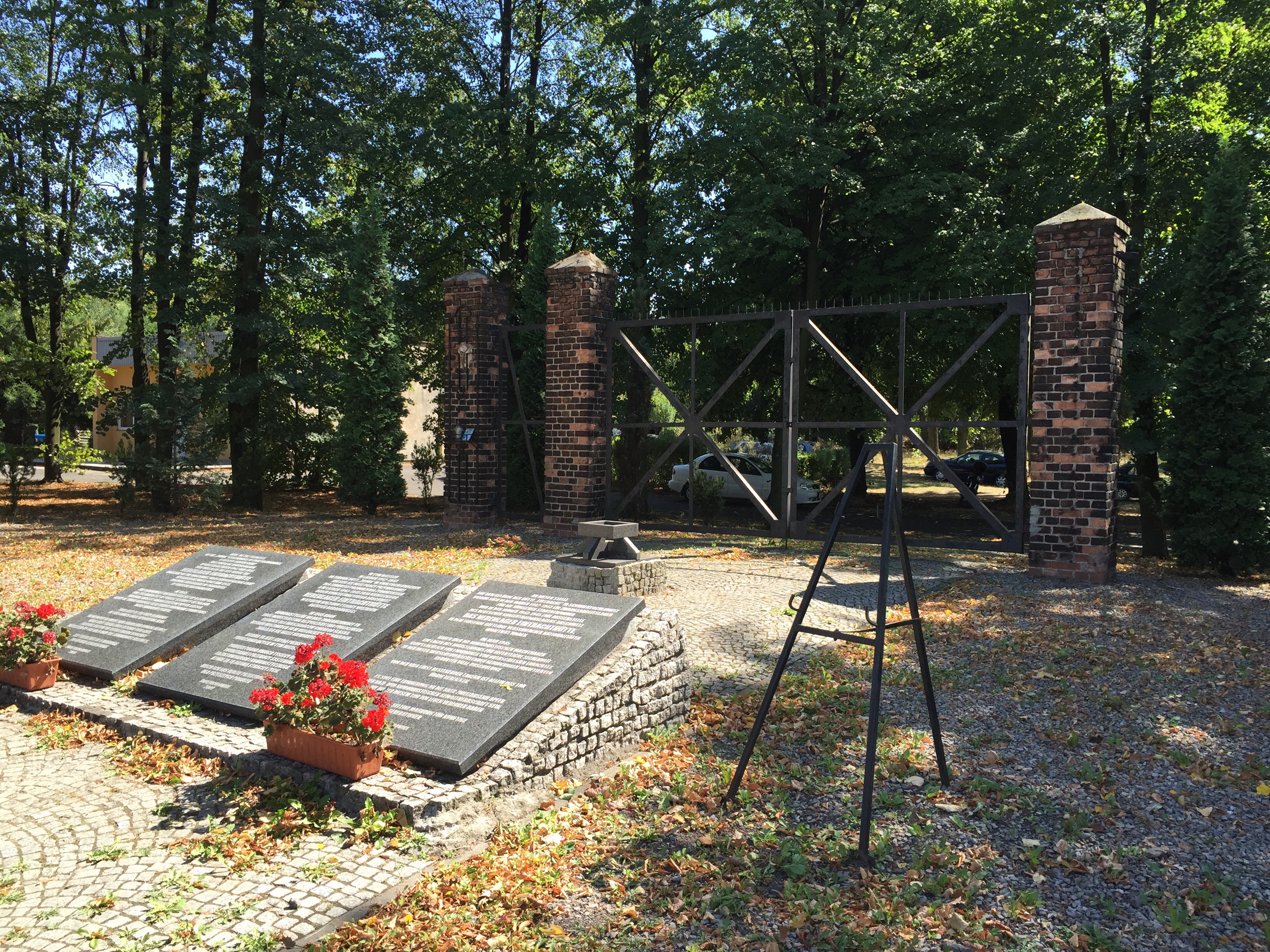|
Salomon Morel
Salomon Morel (November 15, 1919 – February 14, 2007) was an officer in the Ministry of Public Security in the Polish People's Republic. Morel was a commander of concentration camps run by the NKVD and communist authorities until 1956. After Nazi Germany occupied Poland., Morel and his family went into hiding to avoid being placed in one of the Jewish ghettos in German-occupied Poland. Both Salomon and his brother survived part of the war and Holocaust under the protection of a local Polish farmer, before joining communist partisans. In 1944 Morel became warden of the Soviet NKVD prison at Lublin Castle. During most of 1945, he was commander of the Zgoda labour camp in Świętochłowice. In 1949 he was made commander of Jaworzno concentration camp and remained a commandant of numerous concentration camps until they were all closed down in 1956 following the Polish October. He then worked as head of prison in Katowice and was promoted to the rank colonel in the political po ... [...More Info...] [...Related Items...] OR: [Wikipedia] [Google] [Baidu] |
Crimes Against Humanity
Crimes against humanity are widespread or systemic acts committed by or on behalf of a ''de facto'' authority, usually a state, that grossly violate human rights. Unlike war crimes, crimes against humanity do not have to take place within the context of war, and apply to widespread practices rather than acts committed by individuals. Although crimes against humanity apply to acts committed by or on behalf of authorities, they need not be official policy, and require only tolerance rather than explicit approval. The first prosecution for crimes against humanity took place at the Nuremberg trials. Initially being considered for legal use, widely in international law, following the Holocaust a global standard of human rights was articulated in the Universal Declaration of Human Rights (1948). Political groups or states that violate or incite violation of human rights norms, as found in the Declaration, are an expression of the political pathologies associated with crimes against hu ... [...More Info...] [...Related Items...] OR: [Wikipedia] [Google] [Baidu] |
Political Police
Secret police (or political police) are intelligence, security or police agencies that engage in covert operations against a government's political, religious, or social opponents and dissidents. Secret police organizations are characteristic of authoritarian and totalitarian regimes. They protect the political power of a dictator or regime and often operate outside the law to repress dissidents and weaken political opposition, frequently using violence. History Africa Uganda In Uganda, the State Research Bureau (SRB) was a secret police organisation for President Idi Amin. The Bureau tortured many Ugandans, operating on behalf of a regime responsible for more than five hundred thousand violent deaths. The SRB attempted to infiltrate every area of Ugandan life. Asia China In East Asia, the ''jinyiwei'' (Embroidered Uniform Guard) of the Ming Dynasty was founded in the 1360s by the Hongwu Emperor and served as the dynasty's secret police until the collapse of Ming ru ... [...More Info...] [...Related Items...] OR: [Wikipedia] [Google] [Baidu] |
Second Polish Republic
The Second Polish Republic, at the time officially known as the Republic of Poland, was a country in Central Europe, Central and Eastern Europe that existed between 1918 and 1939. The state was established on 6 November 1918, before the end of the First World War. The Second Republic ceased to exist in 1939, when Invasion of Poland, Poland was invaded by Nazi Germany, the Soviet Union and the Slovak Republic (1939–1945), Slovak Republic, marking the beginning of the European theatre of World War II, European theatre of the Second World War. In 1938, the Second Republic was the sixth largest country in Europe. According to the Polish census of 1921, 1921 census, the number of inhabitants was 27.2 million. By 1939, just before the outbreak of World War II, this had grown to an estimated 35.1 million. Almost a third of the population came from minority groups: 13.9% Ruthenians; 10% Ashkenazi Jews; 3.1% Belarusians; 2.3% Germans and 3.4% Czechs and Lithuanians. At the same time, a ... [...More Info...] [...Related Items...] OR: [Wikipedia] [Google] [Baidu] |

